Recently, the International Table Tennis Federation announced the latest world rankings, with a notable development being the formal withdrawal of three main players from the Chinese national table tennis team - Fan Zhendong, Chen Meng, and Ma Long - from the world rankings. This news not only marks the temporary end of their international competitive careers but has also sparked intense discussion and reflection among netizens.

Fan Zhendong, the 27-year-old ball enthusiast, has achieved remarkable success on the international stage with his outstanding skills and tenacious fighting spirit. However, after successfully completing his mission at the Paris Olympics, he faces significant psychological exhaustion and has yet to plan his future career path. The new regulations imposed by the World Table Tennis (WTT) – imposing fines for non-participation – present a heavy burden for Fan Zhendong, who has not yet made a decision. Ultimately, he chose to withdraw from the world rankings but made it clear that he would not retire.
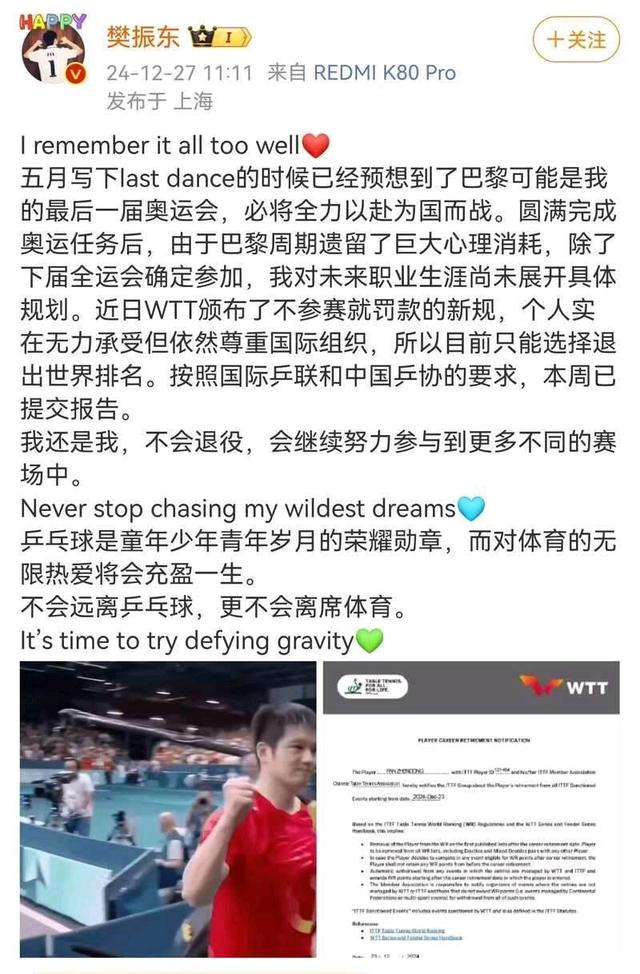
Similarly, 30-year-old Chen Meng faces similar difficulties. As an outstanding player in women's table tennis, she is unable to bear the intensity of every high-level competition due to health reasons, and the new WTT regulations have added to her challenges. After weighing the pros and cons, Chen Meng also decided to withdraw from the world rankings.

Ma Long, 36 years old and a veteran of the national team, sees his withdrawal as more of a graceful exit after achieving great success. After winning his sixth gold medal at the Paris Olympics, he hinted that this might be his last participation in an international official competition. Although he will still prepare for the 2025 Greater Bay Area National Games, his glorious international career has quietly come to an end.
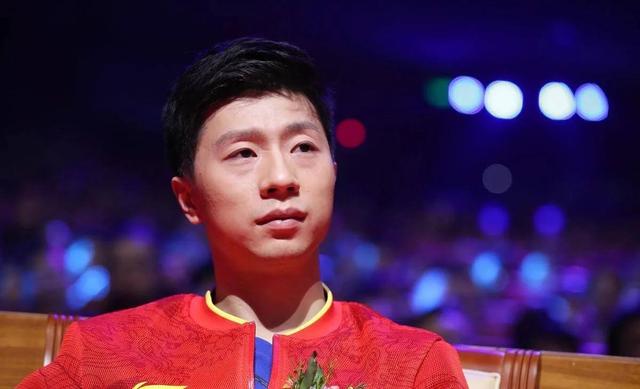
The withdrawal of these three athletes has undoubtedly caused a significant stir in the Chinese table tennis scene. The Chinese Table Tennis Association stated in an official statement that they understand and respect the decisions of the three athletes and have handled all relevant procedures. The association will continue to pay attention to their future developments and provide them with maximum support. At the same time, the association will actively communicate and coordinate with international organizations such as the International Table Tennis Federation and WTT to promote reasonable adjustments to competition rules, ensuring that the legitimate rights and interests of athletes are fully protected.
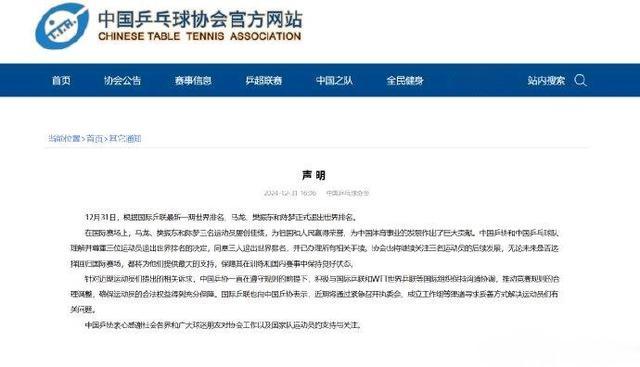
However, this incident has elicited different reactions from netizens. Many express dissatisfaction with the new WTT regulations, believing that these overbearing clauses seriously infringe upon the rights of athletes. Some netizens point out that as a commercial company registered in Singapore, WTT has no right to fine or force athletes to participate. There are also concerns raised about the fairness of WTT's ranking system and prize money distribution, with opinions suggesting numerous unreasonable aspects.
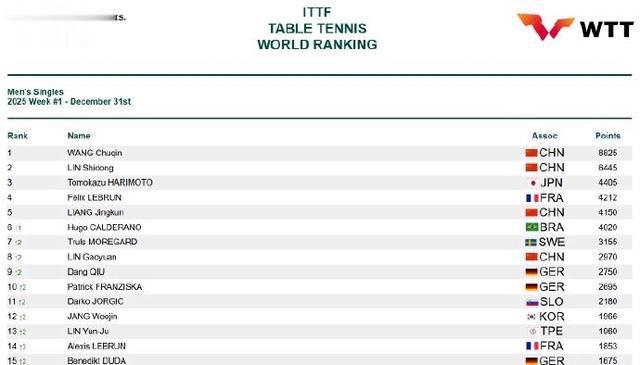
Indeed, as the main body of the sports industry, the rights of athletes should be fully respected and protected. As an important organizer of international table tennis events, WTT should pay more attention to the needs and feelings of athletes, promoting the rationalization and humanization of competition rules. Only then can it attract more excellent athletes to participate in international competitions, promoting the vigorous development of table tennis.
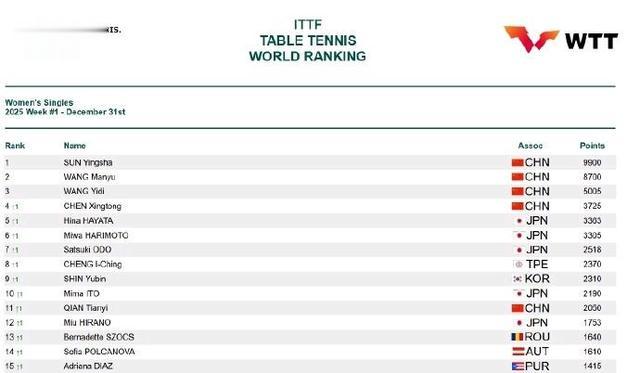
Reflecting on the glorious journey of these three national table tennis players, we are moved by their dedication and perseverance. We hope that in the days to come, they can continue to uphold their passion and dreams, contributing their strength to the cause of Chinese table tennis. At the same time, we also look forward to international organizations such as the International Table Tennis Federation and WTT listening to the voices of athletes and working together to promote the prosperous development of table tennis.